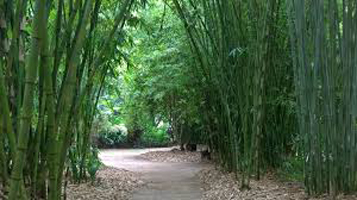NE NEWS SERVICE
NEW DELHI, SEPT 8
Agriculture Minister Narendra Singh Tomar on Tuesday launched 22 bamboo clusters in nine states, and said the country is now gearing up to increase exports of bamboo products.
Agriculture Minister @nstomar launches 22 bamboo clusters in 9 States; Logo for National Bamboo Mission also released
Details here: https://t.co/pIwDPwIhVT pic.twitter.com/aqSjNBGgjU
— PIB India (@PIB_India) September 8, 2020
The bamboo clusters will be set up in Madhya Pradesh, Gujarat, Maharashtra, Odisha, Assam, Nagaland, Tripura, Uttarakhand, and Karnataka, according to an official statement.
In a virtual event, Tomar also released the logo for National Bamboo Mission (NBM), it added.
Addressing the event, the Union Agriculture Minister called upon the states to take forward the objectives of NBM, which would contribute to Prime Minister Narendra Modi’s call of ”AatmaNirbhar Bharat” through self-reliant agriculture.
कल 9 सितंबर को सुबह 11 बजे वीडियो कॉन्फ्रेंसिंग के माध्यम से होने वाले ‘स्वनिधि संवाद’ को लेकर बेहद उत्सुक हूं। इस विशेष बातचीत में मध्य प्रदेश के हमारे परिश्रमी स्ट्रीट वेंडर्स के अनुभवों को जानने का अवसर मिलेगा। #AatmaNirbharVendor https://t.co/Xhzl5qshVX
— Narendra Modi (@narendramodi) September 8, 2020
“The support being given by the Mission to local artisans through locally grown bamboo species will also actualize the goal of ”Vocal for Local”,” he said, adding that this will help increase the income of farmers and reduce dependency on imports of some raw material.
With the wealth of bamboo in India and growing industry, India should aim to establish itself in global markets for both engineered and handcrafted products, he added.
Highlighting the measures taken to promote the sector, Tomar said the government amended the Indian Forest Act 1927 in 2017 to remove bamboo from the category of trees.
As a result, now anyone can undertake cultivation and business in bamboo and its products. Further, import policy has also been modified to ensure the progress of the bamboo industry in the country, he said.
Tomar said the use of bamboo has been an ancient tradition in India and it is now being supported with modern technology. Youths are also being given training for the bamboo industry.
The government launched the restructured NBM in 2018-19 for the holistic development of the complete value chain of the sector.
It was launched as a natural corollary of the historic amendment of the Indian Forest Act in 2017, removing bamboo from the definition of trees, hence bamboo grown outside forests no longer need felling and transit permissions, the statement said.
The Mission is being implemented in a hub (industry) and spoke model, with the main goal of connecting farmers and to increase the supply of appropriate raw material to the domestic industry.
According to the ministry, the bamboo ecosystem has been energized with 23 states being assisted, including all eight North-Eastern states.
Ten most important species which are required by industry have been identified and quality planting material is being made available to farmers for plantations, it said.
Assam has already engaged Farmer Producers Organisations (FPOs) for raising plantations. New FPOs will also be formed under the recently approved scheme for the formation of 10,000 FPOs in five years, the statement added.
Other facilities are being set up close to the plantations which will enable the cost of transportation of the whole bamboo to be reduced, increase local entrepreneurship, and move to a zero-waste approach, the ministry said.
The NBM logo was chosen through a contest. Sai Ram Goudi Edigi from Telangana, who emerged winner of the contest, was selected from 2,033 entries received on the MyGov platform from across the country.
The logo portrays a bamboo culm in the centre of a circle composed of an industrial wheel and farmers, depicting the objectives of NBM appropriately. The green and yellow colour of the logo symbolise bamboo, often termed as green gold, the statement said.










